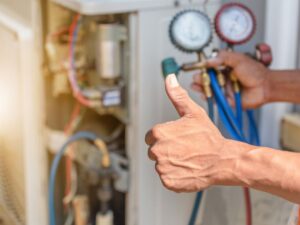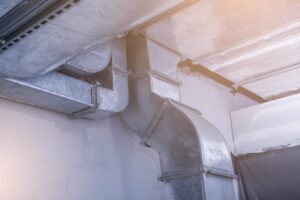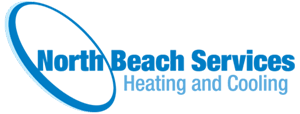5 Tips for Storm-Proofing Your HVAC System
Hurricane season is in full swing, and strong storms are inevitable. Preparing ahead of time can help minimize damage to your HVAC system and property. Here are a few steps you can take to protect your HVAC system from the storms that are prone to hit North Carolina’s Outer Banks area.
Secure Outdoor Objects
Any outdoor items that are loose can become projectiles during high winds. Put away patio furniture, toys, grills, planters and any other items that are not secured to the ground. Advise your neighbors to do the same so that their property doesn’t become your problem.
Safeguard Your External HVAC Equipment
If possible, secure your outdoor HVAC unit with metal tie-downs, hurricane straps or a protective cage. If the area is prone to flooding, your HVAC unit may suffer flood damage. Salt water can be especially destructive. Consider moving your HVAC system to an elevated platform.
Prepare for Power Outages
When a strong storm hits, there’s a good chance that your electricity will go out at some point. When the storm approaches, turn off your HVAC system at the electrical breaker box and the thermostat to prevent damage. Consider investing in a high-quality generator, too.
Protect Against Power Surges
Power surges are common during and after storms. Consider installing a whole-house surge-protection system, which will not only protect your HVAC system but also the rest of your electrical appliances. Otherwise, unplug everything before the storm hits. When the electricity company restores the power, fluctuations can occur since everything turns on at once.
Perform an After-Storm Inspection
When the storm is over, go outside and visually inspect your HVAC unit for any dents, dings or other damage. If it looks OK, switch it on and go back outside to listen for any unusual noises coming from the unit. Make note of any potential defects for possible insurance claims.
If you have concerns about protecting your HVAC system from storm damage, call North Beach Services Heating and Cooling at (252) 429-5325. We’ll be happy to discuss your options to secure your investment before, during and after the storm.
Image provided by Shutterstock
You May Also Like

Heat Pump in Southern Shores, NC, Not Heating? Schedule Repair
Winter winds are whipping across the Outer Banks, and your heat pump has decided to blow cold air instead of the cozy… Continue Reading Heat Pump in Southern Shores, NC, Not Heating? Schedule Repair…

How Damaged Ducts Impact Your Heating Bills in Corolla, NC
Damaged ductwork creates an invisible drain on both your comfort and finances, forcing your furnace or heat pump to work twice as… Continue Reading How Damaged Ducts Impact Your Heating Bills in Corolla, NC…

What’s the ROI for Home Automation in Kitty Hawk, NC?
The salt air drifts through Kitty Hawk, NC, as you settle into your coastal home for the holiday season. Suddenly, your phone… Continue Reading What’s the ROI for Home Automation in Kitty Hawk, NC?…
